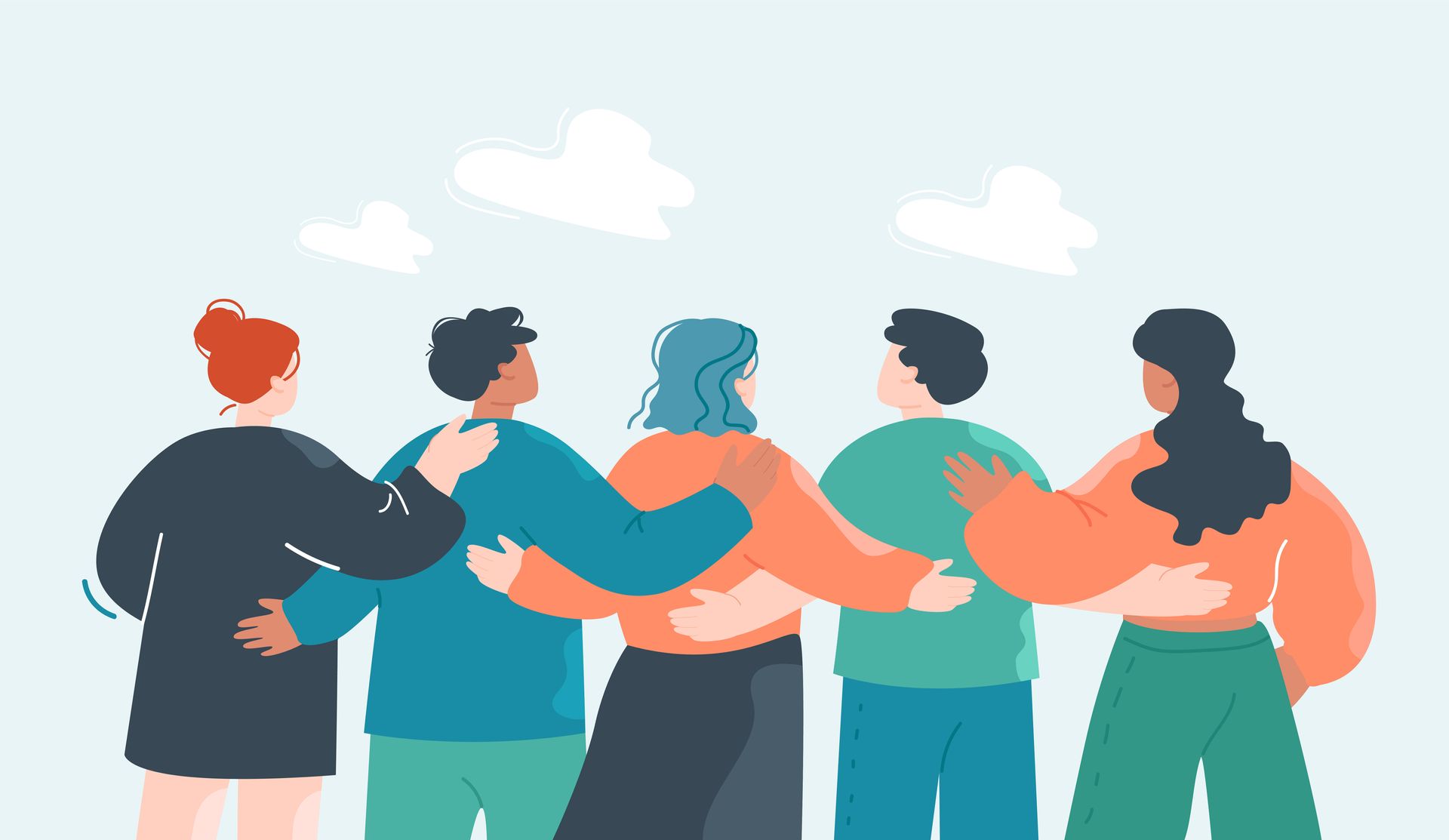The Nurturing Nature of Support Groups: Discovering Understanding, Empathy, and Community Amid Trying Circumstances

By Thrive Wellness
Hardships can feel isolating, but support groups can create a sense of solidarity by connecting individuals experiencing comparable difficulties and providing them with a format for learning, processing, and coping.
WHAT ARE SUPPORT GROUPS?
A support group describes a regular gathering of individuals facing similar challenging circumstances who come together with the intention to understand their experiences and find comfort. In general, a support group has a specific theme that unites the members.
Support groups may vary in the ways they approach their overarching themes. For instance, a body image support group may take a psychoeducational tract by exploring information related to body image. Alternatively, a perinatal grief and loss support group may be more process-oriented, meaning that participants discuss their perinatal grief and loss experience and offer their thoughts regarding other members’ stories.
A support group may also take the form of a skills group, where individuals develop helpful strategies for dealing with a challenge. For example, friends and family members of those with eating disorders may attend a support group with a curriculum that teaches ways to assist and empower their loved ones’ healing.
Support groups can also change, merging different elements in ways that benefit their members. For instance, a support group may begin with the purpose of educating individuals about obsessive-compulsive disorder (OCD), and then become a process group for those participants who are interested in developing a deeper understanding of their experiences with OCD.
BENEFITS OF SUPPORT GROUPS
In everyday life, it may be difficult for an individual to connect with someone else who can honestly empathize with their struggles. Support groups allow participants to meet others who can relate to their difficulties. Members can come together to help each other understand, accept, and cope with similar hardships. In essence, a support group allows individuals to overcome any feelings of isolation and instead feel surrounded by a sense of community and companionship.
A support group can also inspire individuals to explore additional ways of enhancing their well-being. For instance, members of an intuitive eating support group may be able to provide suggestions for registered dietitians who can provide more guidance on the topic. Or, maybe an individual in a social anxiety support group finds it difficult to make friends but is able to create companionable connections with other group participants.
SUPPORT GROUPS AND THERAPY
While support groups may be led by clinical experts, they differ from therapy in that there isn’t necessarily an individual therapist-client relationship. Instead, support groups often take the shape of a gathering of peers, as in Alcoholics Anonymous meetings. While the overarching topic of the group unites its members, shapes the discussion, and influences the interactions, support groups are commonly casual and based in compassion.
If it aligns with a person’s needs, attending therapy in conjunction with a support group may be beneficial. An individual just beginning therapy for anxiety may go to a psychoeducational anxiety support group to learn more about the condition. Similarly, a person in recovery from an eating disorder attending outpatient therapy may choose to participate in an eating disorder recovery support group to stay connected to others who are also progressing in their healing.
A NOTE FOR SUPPORT GROUP NEWCOMERS
Many attending a support group for the first time feel nervous. They may question what elements of their experience to share and what details to leave out. If you’re considering going to a support group for the first time, know that many others are likely new to the group as well and unsure of themselves. Support groups are intended to be a space for honestly expressing oneself with empathic support being the only kind of acceptable participant feedback.
A COMMUNITY OF HEALING AT THRIVE WELLNESS
Committed to creating compassionate, healing, and nurturing spaces, Thrive Wellness offers a variety of support groups . Additionally, we connect individuals with community wellness resources to foster further healing. If your mental, behavioral, or physical health is suffering, we welcome you to Thrive Wellness, where we will meet you where you are and align you with healing care, whatever that may mean for your unique needs. Reach out to learn more about our integrated health services .
While all Thrive Wellness locations offer interdisciplinary clinical teams who collaborate to treat eating disorders, perinatal mood and anxiety disorders (PMADs), and additional mental and behavioral health conditions, programs and services may vary by location.








